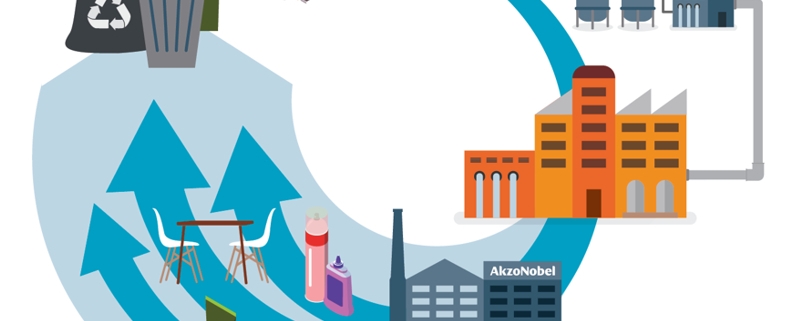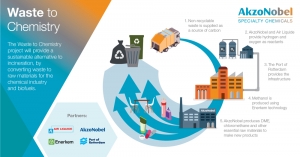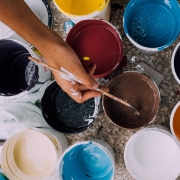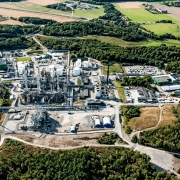Consortium Intends to Build Europe’s First Waste-to-Chemistry Plant
The companies Air Liquide, AkzoNobel Specialty Chemicals, Enerkem and the Port of Rotterdam intend to realize a waste-to-chemistry facility as a “sustainable alternative solution for non-recyclable wastes”.
According to the information, it will be the first of its kind in Europe, converting waste plastics and other mixed wastes into new raw materials. In February this year, the consortium of companies has signed a project development agreement. The initial investments, which cover detailed engineering, the setup of a dedicated joint venture and completing the permitting process, will be worth nine million Euro, AkzoNobel gave account. The consortium would aim to take the Final Investment Decision for the estimated 200 million Euro project later in 2018. Dutch Rabobank will be the lead advisor for the financing process.
“Realization of the project is supported by the Dutch Ministry of Economic Affairs & Climate policy, which has agreed to develop mechanisms and regulation that will help bring this new technology to full scale to support the low-carbon transition of the Dutch economy”, the information says. “The waste-to-chemistry project is also supported by the City of Rotterdam, the Province of Zuid-Holland and InnovationQuarter, the regional development agency.”
It is planned, that the facility will convert up to 360,000 tons of waste into 220,000 tons (270 million liters) of “green” methanol. “As an equivalent, this represents the total annual waste of more than 700,000 households and represents CO2 emission savings of about 300,000 tons”. If realized, the location of the facility will be within the Botlek area of the Port of Rotterdam using the proprietary technology of Canada-based company Enerkem.
The plant will be designed to convert non-recyclable mixed waste, including plastics, into syngas and then into clean methanol for use in the chemical industry and for the transportation sector. Today, methanol is generally produced from natural gas or coal, the consortium informed.
The plant will have two production lines or twice the input capacity of Enerkem’s commercial-scale plant in Edmonton, Canada. It will benefit from the state-of-the-art infrastructure available within the Port of Rotterdam, as well as synergies with Air Liquide (large industries) for supplying the required oxygen, and together with AkzoNobel, the raw material hydrogen. AkzoNobel also acts as a customer for the methanol.
Source: AkzoNobel
GR12018







